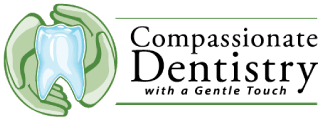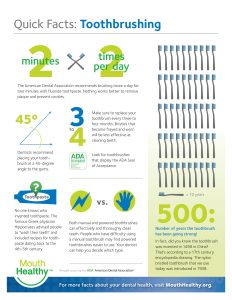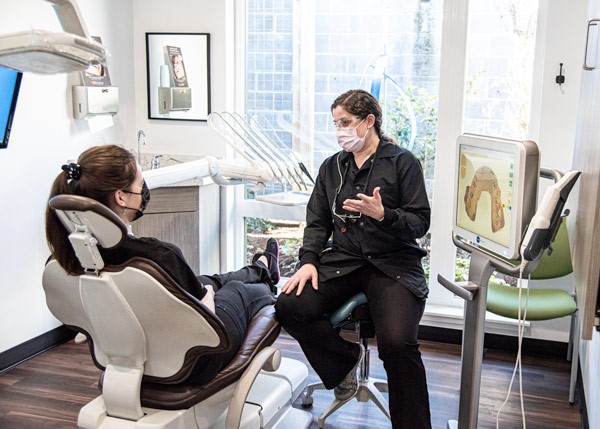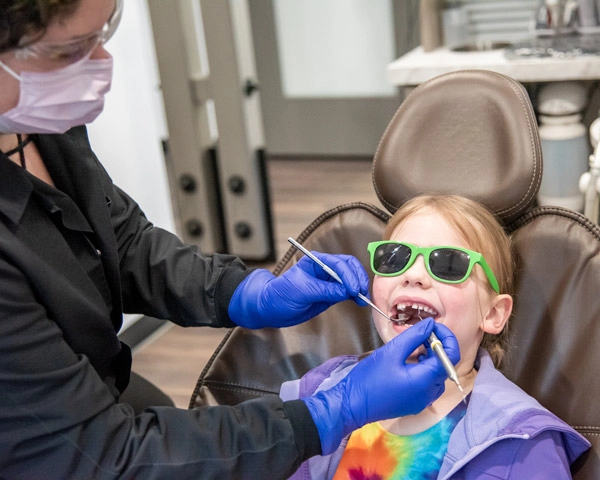Maintaining optimal oral health is crucial for overall well-being, and this holds true for every…
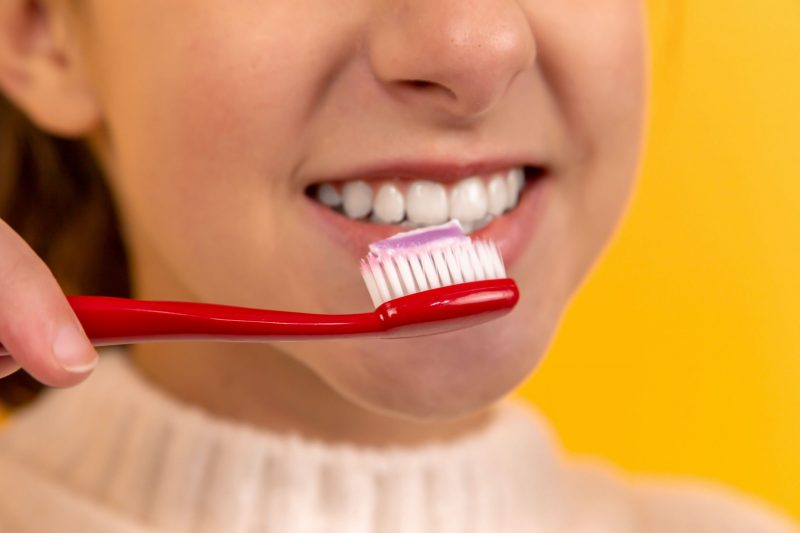
Cavity Prevention
What is a cavity?
Cavities are permanently damaged areas in the hard surface of your teeth that form holes or openings. Cavities can be caused by a multitude of factors, including bacteria in your mouth, frequent snacking, drinking sugary drinks, and not cleaning your teeth well.
Cavities are also referred to as tooth decay, which can be caused by food being left on your teeth. Bacteria that live in your mouth digest that leftover food and start to form plaque. The acids in plaque remove minerals in your tooth’s enamel, which exposes a softer layer called dentin, which is less resistant to acid. As decay progresses inward, the bacteria can cause pain and infection —and lead to a toothache!
Cavities are very common especially in children, teenagers and older adults. Certain things that increase the risk of cavities include inadequate brushing, not getting enough fluoride, and a tooth’s location—back teeth tend to be more difficult to keep clean and have many grooves and pits.
If you don’t treat cavities, they will get larger and affect the deeper layers of your teeth. This can lead to toothache, infection, and even tooth loss. Visiting the dentist regularly, along with proper brushing and flossing habits, are the best way to prevent cavities. If you have not visited the dentist recently, make sure you get an appointment scheduled soon.
Symptoms you might experience if you have a cavity:
- Toothache or tooth sensitivity (also most cavities are not sensitive until getting close to the nerve, so don’t wait until pain occurs to get them addressed!)
- Pain while biting
- Dry mouth
- Visible holes in your teeth
- White, brown or black staining on the tooth surface
Cavity Prevention
Following these steps can help prevent cavities. However, if you do get a cavity, you will be in good hands with the professionals here at Compassionate Dentistry. We’ll take care of it—give us a call!
- The easiest and simplest way to prevent cavities is to brush your teeth regularly. You should be brushing your teeth for two minutes twice daily with a toothpaste containing fluoride. If possible, aim to brush after every meal. It is critical to brush your teeth before going to bed.
- Floss daily! This is the best way to clean the between the teeth surfaces. Not only does flossing prevent cavities, it prevents the build-up of plaque which can cause gum disease. Try listening to music or watching TV while flossing.
- Drink more water, and drink less sugary and acidic drinks. If you are having a sugary or acidic drink, use a straw so it has less contact with your teeth, and have water afterwards. Drinking water with fluoride can aid in the prevention of cavities. (Note, Josephine county does not have enough fluoride in its water to make a significant impact on cavity prevention—ask us about fluoride varnish treatments during your visit that can help.)
- Avoid foods such as candy and chips and sticky foods which can remain on the surface of your teeth. If you do eat sticky food, try to brush your teeth after.
- Visit your dentist regularly. You should visit your dentist at least once every six months. New and existing patients should call our office to schedule your appointment.
- Fluoride treatments. Your dentist might recommend periodic fluoride treatments if you are not receiving enough fluoride through water.
Quick Facts: Toothbrushing
Courtesy of the the American Dental Association
